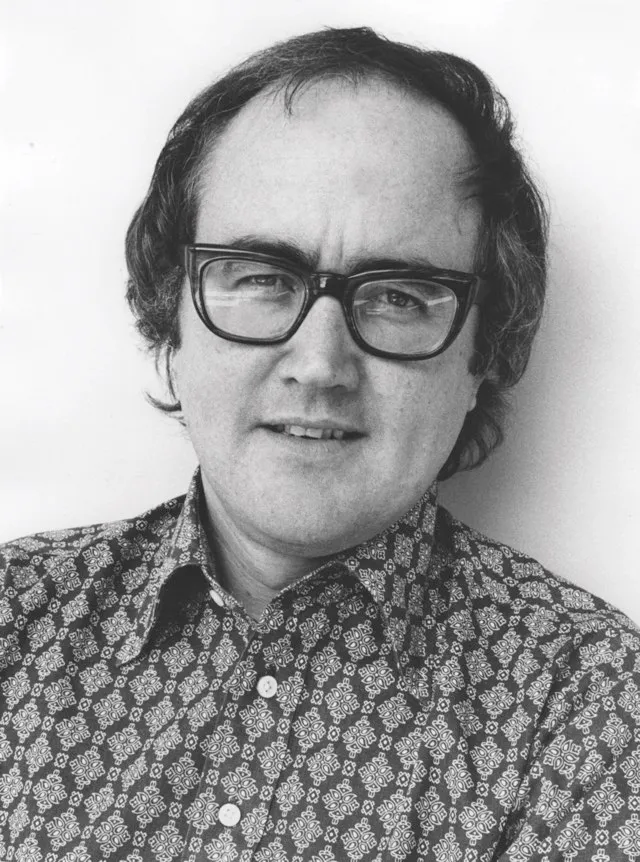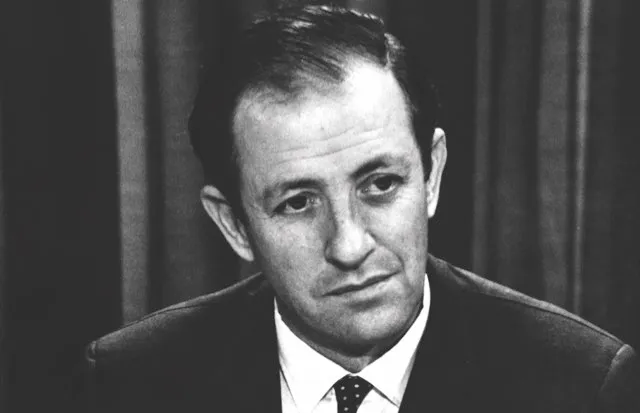The BBC covered the historic Apollo 11 mission by reporting from Cape Kennedy and, a few days later, relaying pictures from the lunar surface to the TV screens in British homes. Two of the presenters involved in the broadcasts recall what it was like to witness the moment we set foot on the Moon.
James Burke

The Apollo 11 coverage was unlike any other live broadcast because there was no precedent of any kind. None of us had ever done anything like it before; it wasn’t like a horse race or a coronation. As I recall, we stayed on air continuously for 11 hours, from 11.30pm until 10.30am the next morning. It was the first all-night broadcast.
I remember an extremely high level of adrenaline that night, because it was a historic occasion and none of us wanted to screw up. When Neil Armstrong said he was going to step off the lunar module, I held my breath and stayed absolutely silent, because what happened next was something for history. That’s the trouble with live situations that you have no control over and no previous experience of: when do you speak? The worst thing would have been to have some stupid commentator talking over the top of a historical moment.
Read more about the Apollo Moon landing:
- Apollo 11 Space Mission: 60 seconds from disaster
- Apollo Mission Patches: Badges of honour
- Everything you ever wanted to know about the Apollo programme
Apollo 11 was the greatest show anybody had ever seen, that much was clear. People in cities around the world were watching it on television sets. And I noticed that barometer of all public reactions, the London taxi driver, rapidly change his vocabulary. In the beginning, they’d say things like: “Big rocket, very impressive thing.” And then, not long afterwards, they’d be talking about mid-course corrections. There was such fantastic public interest.
The Apollo missions were the first time that many people ever realised that we were on a planet. Those images of Earth seen from the Moon gave us, I think, the first real understanding of the vulnerability and fragility of our ‘blue marble in space’. The environmental movement is one of the things that has come out of the Moon landings most strongly.
But the incomprehensible, unbelievable nature of the event has disappeared. For today’s kids, it’s simply a given that we once stood on another world. We have lost that sense of astonishment at the achievement in a short space of time.
Michael Charlton

I was at Cape Kennedy and Houston during the Apollo 11 mission coverage. It was my job to convey what it was like to be there, the context in which the mission was happening and the atmosphere of mission control.
At the launch, I was in the grandstand. I used to commentate on test cricket and it was rather like that. But I was quite unprepared for the noise the Saturn V made – it shook your insides. The microphone couldn’t handle noise like that and we had to turn the volume down. It was an absolutely colossal sound.
They were very brave, those boys, sitting on top of what amounted to a huge bomb. I remember asking one of the earlier astronauts whether he felt at all poetic about the Moon (I had Keats’s phrase, “Alone and palely loitering,” in mind) and he said he didn’t. So I asked, “Well, what is the Moon to you?” And he said, “A big fat target.” They were test pilots first and foremost, certainly not round-shouldered academics.
They were the sort of people you could expect to keep their heads in a crisis. Take the way Buzz Aldrin talked that spacecraft down to the Moon, it was like he was helping someone back into a parking space. I thought it was extraordinary.
Read more about the people behind the Moon landing:
- Small steps: How NASA prepared for the first moonwalk
- Wernher von Braun: Director of the Marshall Space Flight Center/Saturn V Chief Architect
- Ladies who launch: the women behind the Apollo Program
The Moon landing came at a useful time; it was an uplifting moment in a period of gathering cynicism and disturbance, what with the Cold War, the Vietnam War, the civil rights movement and student riots. But the Moon landing offered the restoration of hope and that was important given the threat that hung over the world back then.
It was very important too that it was a civil rather than a military programme. It was an attempt to say that rockets could be put to other uses. Nevertheless, having reported on the arms race, I was aware of what the Saturn V’s precision represented in military terms: that America really could annihilate a good deal of the world. It was a most extraordinary event and I still find it rather difficult to comprehend that it actually happened.
Sir Patrick Moore
Head over to BBC Sky At Night Magazine to find out what Sir Patrick Moore, astronomer and presenter of the BBC’s The Sky At Night, made of his experience of the Apollo 11 Moon landing.
Listen to brilliant podcasts about the Apollo Programme:
- Science Focus Podcast|Why is the Moon landing still relevant 50 years on? – Kevin Fong
- Science Focus Podcast|The mindset behind the Moon landing – Richard Wiseman
- Radio Astronomy Podcast|Talking Apollo moonwalkers with author Andrew Smith
- History Extra Podcast|The race to the moon with historian Kendrick Oliver
Follow Science Focus onTwitter,Facebook, Instagramand Flipboard